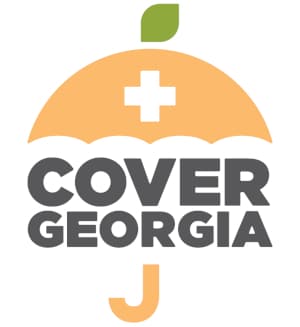Originally posted at HealthyFutureGA.org
Georgians across the state are being asked to decide how they will cast their votes in November for positions such as Governor, Insurance Commissioner, state senator and state representative. The decisions made by voters about these elected positions will directly impact critical consumer health issues in Georgia like access to health care, affordability of health insurance, the opioid crisis, and the sustainability of the rural health care system.
As candidates crisscross the state or their districts asking for support, voters will consider their stances on a number of important issues including health care. To help voters make their decisions, we put together this list of questions for voters to ask of candidates about five timely and pressing consumer health care issues.
These questions can be used at town halls and candidate forums or posed to candidates via social media or in one-on-one conversations.
Closing the coverage gap
- Over 240,000 Georgians make too little to receive financial help to buy private health insurance but do not qualify for Medicaid, meaning they fall into the Medicaid coverage gap. Many of the families who fall in the gap are hard-working people who work in industries that make up the backbone of our state: trucking, food service, and childcare. Do you support using federal funds to close the Medicaid coverage gap and offer affordable health coverage to these 240,000 Georgians while boosting the Georgia’s economy? Please explain.
- A 2016 Department of Health and Human Services study showed that marketplace premiums were on average 7 percent lower in states that extended Medicaid to low-income residents. Do you support closing the Medicaid coverage gap as one method to reduce health care costs and lower the uninsurance rate for consumers in Georgia? Please explain.
Georgia’s health insurance marketplace
- Health insurance premiums for Georgia consumers will rise by as much as 15 percent in 2019 due to the repeal of the individual mandate by Congress and the elimination of cost-sharing reductions, among other things. If elected, what improvements would you make to our health care system to ensure your constituents have access to high quality, comprehensive and affordable health insurance?
- The federal government has expanded insurance companies’ ability to sell short-term plans that do not cover key services like mental health treatment or prescription drugs. These plans will increase health care costs and roll back consumer protections that many families in our state depend on. How do you think Georgia should regulate these plans?
Opioid/substance use crisis
- In 2016, about three Georgians died each day from drug overdoses and thousands of Georgians live with substance use disorders regularly. To slow this crisis, a broad spectrum of strategies will be needed from prevention and early intervention to expanded access to treatment. If elected, what would you do to address the state’s substance use crisis?
Communities left behind
- Seven rural hospitals in Georgia have closed since 2010. Rural hospitals are often the largest employer in the area and are the economic engines that help to support local small businesses (like the flower shop or pharmacy). If elected, what will you do ensure that rural communities have adequate access to quality, affordable health care?
- People of color in Georgia have shorter life expectancies, higher rates of chronic disease, and are more likely to be uninsured and live in medically underserved areas. The causes of these outcomes are complex and linked to reduced access to quality education, fewer economic opportunities, discrimination, and other social and economic factors. As (Governor/Insurance Commissioner/other position title), how would you address the health disparities experienced by people of color in Georgia?
Defending health care gains
- Over the past two years Congress has repeatedly attempted to repeal the AffordableCare Act (ACA) and slash federal Medicaid funding that our state relies on, despite the fact that 74 percent of the public view the Medicaid program favorably. If elected, will you support/continue to support the program in the face of threats? Please explain.
Did you ask one of these questions to a candidate? Let us know! We want to know which questions were most helpful and how candidates are responding. Email Michelle Conde at mconde@healthyfuturega.orgwith your feedback.

